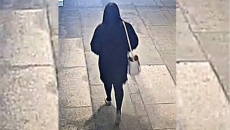There will be a joint federal-provincial inquiry or review into the mass killing that claimed 22 lives in rural Nova Scotia in April, but the exact form of that investigation is still taking shape, the province's justice minister says.
Mark Furey said the probe must have certain key features, including judicial leadership, the power to compel witnesses to testify and the ability to make binding recommendations.
"We are trying to find a mechanism that will hold agencies accountable for public discussion," Furey said in an interview."I just want to make sure we are picking the right one."
Furey said he and his staff are negotiating with Ottawa to determine the best option, which could include a traditional federal-provincial public inquiry led by an independent commissioner.
"We desire a joint review or inquiry of these circumstances," he said.
"We are open to public inquiries and we recognize the need for agencies and entities to remain accountable, that the public has a right to know, and that we find those answers that lead to change."
Since the April 18-19 shooting rampage in northern and central Nova Scotia, the federal and provincial governments have faced increasing pressure to call an inquiry into one of the worst mass killings in Canadian history. Those calling for an inquiry include opposition politicians, more than 30 Dalhousie University law professors and a number of the victims' relatives.
On Monday, the daughter of Heather O'Brien — a nurse who was killed by a gunman on April 19 — urged the federal and Nova Scotia governments to work together.
In an open letter, Darcy Dobson said "the back and forth about who's responsible for an inquiry is unreal," and argued that "the amount of information being kept from us is deplorable."
Furey said he had read Dobson's letter.
"It's important to me that the families get the support and answers that they need," he said.
"I want to assure Ms. Dobson and other family members that we continue in regular discussions with the federal government.... It's taking time. I recognize that. But we absolutely have to have the right mechanism and we need terms of reference that are broad in scope and can address of those questions that families and communities have."
The minister, who is also a former Mountie, said the investigation could include an independent review similar to the one the RCMP conducted after three Mounties were killed and two others wounded by a gunman in Moncton, N.B., in June 2014.
That investigation, led by a retired RCMP assistant commissioner, focused on the force's response, training, equipment and procedures. There were no public hearings, but the reviewer's final report was released to the public with recommendations.
Furey also said he would like the investigation to take a restorative approach, which is what the province did in 2015 when it looked into allegations of long-term abuse at a former orphanage in the Halifax area.
The Nova Scotia Home for Colored Children Restorative Inquiry was not a provincial inquiry in the traditional sense, though it was established under the authority of Nova Scotia's Public Inquiries Act.
Its collaborative approach featured "sharing circles" with former residents, black youth and community organizations. Instead of providing a list or recommendations, the inquiry's final report offered a kind of road map for breaking down what it described as the government's fragmented approach to helping people in need.
"I believe there is an opportunity for some kind of restorative lens that ... facilitates participation and gets the families and communities the engagement they need and the answers they need," Furey said.






